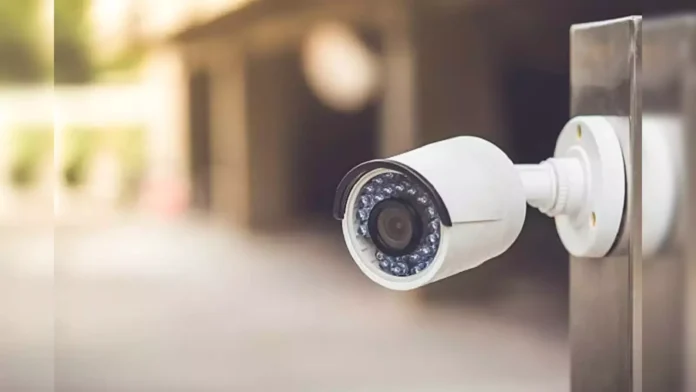Hidden surveillance cameras, also known as covert cameras, have gained popularity as a discreet means of enhancing home security. These cameras are designed to blend seamlessly into the surrounding environment, making them ideal for covert monitoring of indoor and outdoor spaces. However, concerns about privacy implications have led to debate regarding the ethical and legal considerations of using cctv camera installation in residential settings. In this article, we explore the potential benefits and privacy considerations associated with hidden surveillance cameras and how they can enhance home security without compromising privacy.
Discreet Monitoring of Vulnerable Areas
One of the primary benefits of hidden surveillance cameras is their ability to discreetly monitor vulnerable areas of the home without drawing attention to the presence of cameras. Unlike traditional security cameras, which may be easily identifiable and subject to tampering or vandalism, hidden cameras remain inconspicuous and undetectable to intruders.
By strategically placing hidden surveillance cameras in key locations, such as entryways, hallways, or blind spots, homeowners can maintain constant vigilance over their property without alerting potential intruders to the presence of surveillance equipment. This discreet monitoring enables homeowners to gather valuable evidence of suspicious activity or security breaches, facilitating timely intervention and enhancing overall home security.
Remote Surveillance Cameras and Monitoring
Hidden surveillance cameras offer remote surveillance and monitoring capabilities, allowing homeowners to monitor their property from anywhere at any time. With remote access to live video feeds and footage, homeowners can keep an eye on their home while away, ensuring peace of mind and proactive security management.
This remote surveillance functionality enables homeowners to respond quickly to security alerts or suspicious activity, whether by notifying authorities, activating alarm systems, or taking appropriate action to address potential threats. By leveraging the power of hidden surveillance cameras for remote monitoring, homeowners can enhance their ability to protect their property and loved ones, regardless of their physical location.
Deterrent Effect on Intruders
While hidden surveillance cameras may not be immediately visible to intruders, their presence can serve as a powerful deterrent against criminal activity. The fear of being caught on camera and facing potential legal consequences can dissuade would-be intruders from attempting to break into or vandalize a property, reducing the likelihood of security breaches and enhancing overall home security.
Even if intruders are unaware of the presence of hidden cameras, the mere possibility of being monitored can influence their behavior and deter them from engaging in criminal acts. This deterrent effect reinforces the effectiveness of hidden surveillance cameras as a proactive security measure, helping to prevent security incidents before they occur and maintaining a safe and secure home environment.
Privacy Considerations and Legal Compliance
Privacy considerations and legal compliance are paramount when using hidden surveillance cameras in a residential setting. While hidden cameras can enhance home security, they must be deployed in a manner that respects the privacy rights of individuals and complies with applicable laws and regulations governing surveillance and recording activities.
Homeowners should be mindful of the locations where hidden surveillance cameras are placed to avoid infringing on the privacy of occupants or visitors. Areas such as bedrooms, bathrooms, and other private spaces should be off-limits for surveillance to ensure privacy and prevent potential legal liabilities.
Transparent Communication and Consent
Transparent communication and obtaining consent from household members and visitors are essential when using hidden surveillance cameras in a home environment. Homeowners should clearly communicate the presence of hidden cameras to all occupants and visitors and obtain their consent before recording or monitoring activities.
Open dialogue and transparency regarding the use of hidden surveillance cameras help establish trust and respect among household members and promote a shared understanding of security priorities and concerns. By involving all stakeholders in the decision-making process and addressing any privacy concerns or objections, homeowners can ensure that hidden surveillance cameras are deployed ethically and responsibly.
Regular Maintenance and Compliance Checks
Regular maintenance and compliance checks are necessary to ensure that hidden surveillance cameras continue to operate effectively and comply with privacy laws and regulations. Homeowners should routinely inspect and test hidden cameras to verify their functionality and identify any issues or malfunctions that may compromise their effectiveness or privacy compliance.
Additionally, homeowners should stay informed about changes in privacy laws and regulations that may affect the use of hidden surveillance cameras and update their security practices accordingly. By proactively addressing maintenance needs and staying compliant with legal requirements, homeowners can maximize the benefits of hidden surveillance cameras while safeguarding privacy rights and maintaining ethical surveillance practices.
In conclusion, hidden surveillance cameras offer a discreet and effective means of enhancing home security without compromising privacy when deployed responsibly and ethically. By discreetly monitoring vulnerable areas, providing remote surveillance capabilities, deterring intruders, addressing privacy considerations, promoting transparency and consent, and ensuring regular maintenance and compliance checks, homeowners can leverage the benefits of hidden surveillance cameras to protect their property and loved ones while respecting privacy rights and legal requirements.















